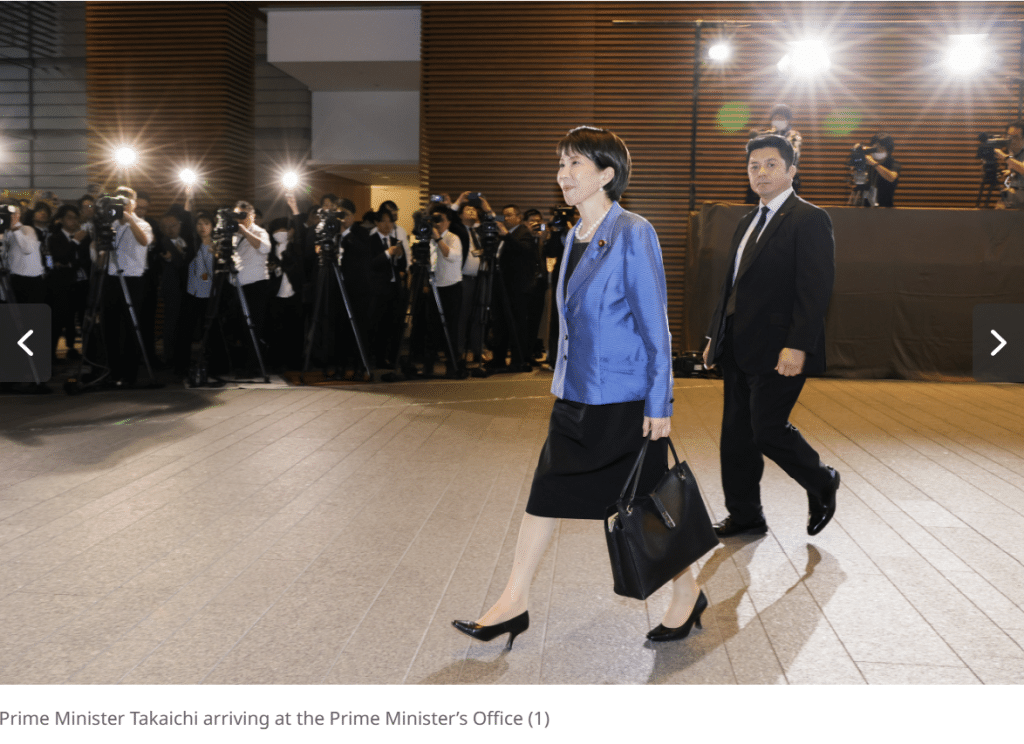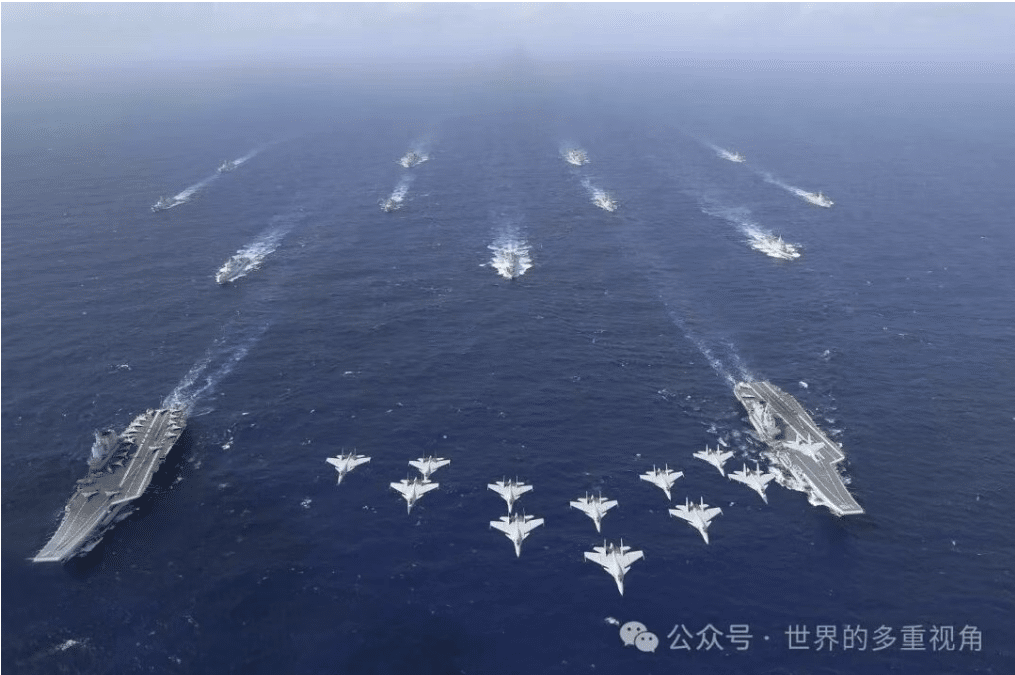Sam Hogg on China, the Tory election, and Britain’s Transatlantic Ties
- Interviews
 Michael Cerny
Michael Cerny- 07/20/2022
- 0
‘There was a time when [the U.K. was] talking about having a Golden Era of relationships with China, and… having deeper collaboration in things like food security and technology. But what we do need to do is acknowledge that China is a threat to our national security, it’s a threat to our economic security.’
Rishi Sunak
Sam Hogg is the founder and editor of Beijing to Britain, the only weekly briefing on UK-China relations. With a keen eye for the undercurrents of UK-China relations, the newsletter enjoys broad readership from Westminster to Washington. You can subscribe to the newsletter here.
This interview, which was conducted over email, has been edited for clarity and brevity.
After a roughly three-year term as Prime Minister of the United Kingdom, Boris Johnson announced his resignation in early July 2022. He is now serving in an interim capacity as the Conservative Party selects a new Prime Minister.
What major themes characterized the Boris government’s foreign political approach to China? In what ways, if any, did it differ from that of the U.S. Biden administration?
Prime Minister Boris Johnson’s approach to China and the Chinese Communist Party could be described by some as largely reflecting his approach to most policy – positive cakeism. He has long held the view that, despite what others think, you can have your cake and eat it too. In this context, you can continue to pursue closer economic engagement with China, despite your own Government simultaneously viewing it as a ‘systemic challenge‘ and one that is committing gross human rights abuses in Xinjiang. You can continue to encourage Chinese investment into the U.K., despite your own spy service warning that Beijing is now their number one priority. And you can continue to push for trade talks, despite the Chinese Communist Party sanctioning several of your political colleagues and implementing a law in Hong Kong your own Government says puts China in a ‘state of ongoing non-compliance’ with the Joint Declaration.
Others would position Johnson’s approach as realpolitik. The month before the Chinese Communist Party sanctioned British citizens and politicians, Johnson told a group of businesses gathered in Downing Street that he was ‘fervently Sinophile’ and determined to improve ties ‘whatever the occasional political difficulties’. A studied classicist, and long time admirer of China, Johnson likely appreciates that the U.K. is no longer a global superpower. So while Britain can certainly position itself with America on some policy changes and hardening in approaches towards China, in a post-Brexit world it simply cannot afford to share the geopolitical outlook and ambitions we saw put forward under President Trump, or carried on by President Biden. A trade war between the U.K. and China would look very different than the current one between Washington and Beijing.
The frontrunners of the Conservative Leadership election are now former Chancellor of the Exchequer Rishi Sunak and former Secretary of State Liz Truss, both members of Boris Johnson’s cabinet. Tell us about their platforms with respect to U.K.-China relations. How do they differ? Is there a meaningful distinction between these platforms and that of their predecessor?
If one were to look at the position each has set out in the last 48 hours with absolutely no added context, then there is little to separate Sunak and Truss’ stated public views towards the UK’s relationship with China. Both now hold the view that the Chinese Communist Party is a top threat, engages in economic coercion, sometimes through the Belt and Road Initiative, and that the U.K. needs to protect strategically valuable sectors and industries in the U.K. from Chinese investment. Both talk up their role in shaping the Integrated Review, or legislation such as the National Security and Investment Act, which seeks to protect 17 sensitive areas of the economy. On a more granular level, Sunak has called for Confucius Institutes to be banned across the U.K., and Truss has mentioned defending Taiwan significantly more often, whilst also hinting in Monday night’s debate that she is in favour of cracking down on companies like TikTok.
However, we get a much fuller picture of the difference in approach between both candidates when we look back before Sunday morning at 9AM. In her role as Foreign Secretary, Truss has overseen a much more natural evolution to her current ‘hawkish’ view of the Chinese Communist Party. Soon after taking the role, she launched her Network of Liberty Strategy, which she has continued to refine. She has made her views on working with the Americans and Australians very clear, and her displeasure at how the Chinese government conducts itself is well known. Equally as notable, she has allegedly committed to MPs that she will state genocide is taking place in Xinjiang should she become Prime Minister – a move that would put her and the U.K. on the same page as the Biden adminstration. Prior to her role as Foreign Secretary, as a Trade Minister Truss long called out what she perceived as unfair trading practices from the CCP, and urged for WTO reform.
Sunak, on the other hand, has until recently publicly held the view that the ‘debate on China [in the UK] lacks nuance’. In a Mansion House speech delivered to businesspeople and City Grandees last year, he stated ‘the truth is, China is both one of the most important economies in the world and a state with fundamentally different values to ours. We need a mature and balanced relationship’. As recently as January this year he was reported to be pushing a ‘complete sea change’ in how the UK approaches China, pushing for closer economic ties. And as one way of measuring previous interest, it’s worth knowing Suak had tweeted about China twice in three years before pivoting to his new China approach on Sunday.
During last night’s Prime Minister debate, there was a brief discussion of how each candidate would approach the U.K.’s foreign relations with China. It appeared as though both were on the same page about the challenge China poses to U.K. interests, instead trading barbs over one another’s past actions and statements on the issue. Does this suggest that China is only an election issue as far as not looking too ‘soft’ on China? Is there something more? To what extent does this debate reflect public opinion in the Conservative Party?
Last night’s debate had an odd segment on China, which saw the pair try to paint each other as being advocates of the ‘Golden Era’ and weak on national security. That reflects two things in my opinion – first, neither candidate wants to look ‘soft’ on China, and second, there is political capital to be won by positioning oneself as being tough on the Chinese Communist Party. Both are linked.
The former is, in my view, one of the reasons China has featured so heavily in recent weeks. It is an issue that is perceived to be a weak one for Sunak. From a strategic campaigning point of view, his team seem to have been influenced subconsciously by Sun Tzu and decided that ‘attack is the secret of defense’, hence my recent point that his hastily prepared policies ‘are not ideas that are meant to impress think tankers, China analysts or business leaders’ but are instead ‘designed to grab headlines, go on the offensive, and show Sunak shares the Conservative Member view that China is the number one threat facing Britain’. I thought his attack line on Truss – that she had spoken in favour of the Golden Era a couple of years ago – was unusual, given that few Cabinet Ministers (if any) have been as vocally hawkish towards China for the last two years. Additionally, if the final two had been Truss and Tom Tugendhat, I suspect China wouldn’t have been seen as a friction issue, given their broadly similar records on the matter, and therefore wouldn’t have got the airtime in the same way as it did last night.
Second, the not-looking-soft pitch likely builds on internal and public polling which shows British voters care about this issue. A recent survey from the British Foreign Policy Group found the three most prominent security threats perceived by Britons were, in order, ‘climate change, terrorism, and the rise of China as a world power’, and that only 30% of Conservative voters were in favour of cooperation with China on shared global challenges. Then at the beginning of this month, a poll by Redfield & Wilton Strategies found 42% of 2019 Conservative voters (the last year there was a General Election) want a Prime Minister who sees China, rather than Russia, as the UK’s primary threat.
With respect to U.S.-U.K. relations, do you expect any meaningful change under a new Prime Minister? What implications do you see, if any, for how the U.K. engages with the U.S. on China-related issues? Has the subject of AUKUS seen any play in this election?
It’s hard to say how different either candidate’s approach to the Biden administration would be, and worth remembering that both could end up being constrained by the sheer Whitehall and Government machinery at play in their respective approaches. Both could do with significantly beefing up their China teams and the breadth of expertise advising them. Now I’ve got those caveats out the way, let’s mull over what both Governments could look like.
I suspect given her world view, Truss would be more aligned to the Biden administration’s own China approach – certainly Antony Blinken’s speech looked like a more sophisticated offering of parts of her Network of Liberty Strategy – and therefore probably more willing to follow America’s lead on much of it. On the difficult, granular policy stuff – how does one actually form an economic NATO, to what extent should the UK be arming Taiwan, is genocide actually taking place in Xinjiang and how should the Government act – Truss remains largely untested. Of the two, hers is the premiership that most worries those with China experience that I speak to. They are unimpressed by her ‘headline first, policy later’ approach, and feel she is out of her depth on sensitive issues like Taiwan. Taking a step back, another slight complication is her approach to Northern Ireland, which we know is a particularly personal matter to President Biden.
Sunak in Downing Street would probably be a continuation of Johnson’s own approach – talk about values-led engagement publicly, take a pragmatic/realpolitik/business-over-values approach (depending on who you ask) in reality. He has close ties to America through his time in California, and like Truss, is a committed Atlantacist. But he has built his campaign off being a candidate who is prepared to make ‘hard choices’, and therefore may take a firmer line when it comes to difficult issues the American Administration may want the UK to side with them on. Again, these are hypothetical scenarios!
On your last point – AUKUS has actually been surprisingly absent. Perhaps it fell off both team’s briefing notes!
Thank you very much, Sam.







